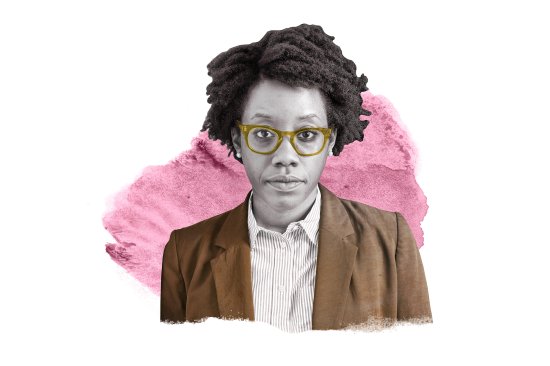
The coronavirus is disproportionately affecting African Americans, but health inequality plagued the U.S. long before the virus arrived. Democratic Congresswoman Lauren Underwood, who represents Illinois’s 14th District and is the youngest black woman to serve in Congress, believes that better policy can help close the divide. —Mandy Oaklander
How is your district faring with the coronavirus? This has been tough. My congressional district is half suburban but also half rural. The different types of communities experience it differently. In our suburban communities, so many people are working from home if they are working. But we’re also seeing significant increases in unemployment—like 1,000%. It’s not necessarily like that in all of our rural communities where day-to-day life hasn’t necessarily changed in terms of requirements to stay home and things like that. Certainly the agriculture industry has suffered. The leadership challenge for us is to navigate that dual experience.
[time-brightcove not-tgx=”true”]
Are you seeing outcome disparities in terms of COVID-19 deaths? In Illinois, African Americans comprise less than 15% of the population but over 42% of the fatalities. We know that public-health crises can exacerbate existing health and economic disparities, and COVID-19 unfortunately is not an exception. We know that African Americans experience conditions like hypertension, heart disease, lung disease and kidney disease disproportionately and that those are related to more severe cases of COVID-19 and worse outcomes.
What can we do to close these gaps? One of the biggest problems for understanding the disparities is that they’re not holistically tracked at the federal level. So I just joined my colleagues Robin Kelly, Karen Bass and Ayanna Pressley [and others] in introducing legislation—called the Equitable Data Collection and Disclosure on COVID-19 Act—to require the Department of Health and Human Services to collect and report racial, ethnic and other demographic data on COVID-19 testing, treatments and fatality rates. We need to have concentrated, focused testing efforts designed to reach out to vulnerable populations.
Data is so important as a foundational step. But also we have to have quality affordable health care coverage to begin to address health disparities, right? I called on the Administration to open a special enrollment period to allow uninsured Americans to enroll in marketplace coverage, and states that haven’t expanded Medicaid should follow Illinois and do so immediately. Before COVID became a pandemic, we had millions of Americans that were uninsured in our country. And we’re seeing the consequences of that right now.
You are a registered nurse. How can we better support health care professionals and others on the front lines? So many people are considered to be essential workers: truck drivers, health care workers, first responders, grocery-store clerks, letter carriers. We have to be doing everything that we can do to ensure that these individuals have the personal protective equipment (PPE) that they need to do their jobs. Right now, they oftentimes do not. For most of our PPE, the supply chain was dependent on foreign sources, and we’re not able to import [enough] raw goods or fully produced items from our foreign trade partners or suppliers. Our domestic manufacturing began very low and still weeks into this pandemic remains low. We’ve been calling on the President to activate his authority under the Defense Production Act—not just for ventilators, which he has activated for, but for PPE. It is critical.
Going forward, how can the government protect against disparities like the ones we’re seeing now? I think that will require a significant level of investment in biomedical research and in expanding access to care, which means lowering health care premium costs and making sure prescriptions are affordable. It means making sure that we have enough health care professionals, because we know that there are shortages in many communities. It means that we have to expand Medicaid. We have to do all this work to improve the health status of the American people and be willing to make the investments to do so. If we have a healthy population, it gives us a better fighting chance in the face of a pandemic. I hope that is one of the lessons that we take away from COVID-19: we have a lot more work to do to improve health and to save lives everywhere, in particular for vulnerable populations and communities of color.
This article is part of a special series on how the coronavirus is changing our lives, with insights and advice from the TIME 100 community. Want more? Sign up for access to TIME 100 Talks, our virtual event series, featuring live conversations with influential newsmakers.